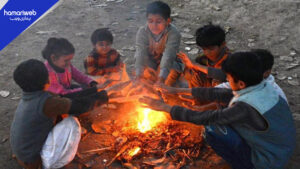Pakistan Considers Law to Ban Child Domestic Labor
-
Rida Shahid
-
- Published January 5, 2024

In a landmark move towards safeguarding human and child rights, a collaborative effort involving civil society activists, legal experts, and government representatives emphasized the urgency of enacting legislation to criminalize child domestic labor. This exploitative practice, akin to slavery, has raised serious concerns following incidents of torture and even deaths among child domestic workers across the country.
During a pivotal consultation on The Prohibition of Child Domestic Labour Bill 2024, organized jointly by the National Commission on the Rights of Child (NCRC) and UNICEF, key stakeholders delved into the pressing need for legal measures. The main speakers, including Ms. Anis Haroon of NCHR, Zulfiqar Shah of SHRC, and representatives from NCRC and UNICEF, highlighted poverty as the primary driver of child domestic labor in Pakistan. The responsibility, they asserted, lies with both parents and affluent employers.
With a focus on the proposed bill, which classifies Child Domestic Labour (CDL) as a non-compoundable, non-bailable, and cognizable offense, the speakers underscored their commitment to prioritizing children’s rights. Poverty identified as the main reason for child domestic labour in Pakistani society. Both parents and employers who are mostly rich families deemed responsible for this menace, they pointed out.
The consultation also addressed the grim reality that over 6 million school-going children are out of school in Sindh alone, highlighting the need for parental awareness and incentives for education.
NCRC member Pirbhu Lal Satyani highlights the transformative impact of the proposed bill to amend the Pakistan Penal Code and the Code of Criminal Procedure. The 2024 Criminal Amendment (Prohibition of Child Domestic Labour) Bill suggests strict penalties, such as imprisonment and fines, for involving children in domestic labor.
The NCRC aims to bring about societal change by improving the bill through consultations, collaborating with government, civil society, and child rights experts.









Leave a Reply